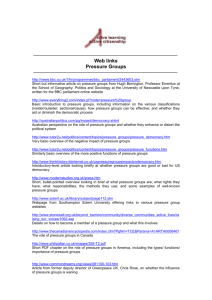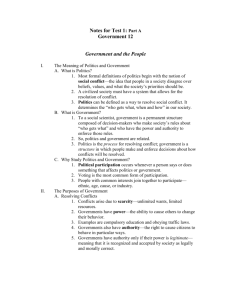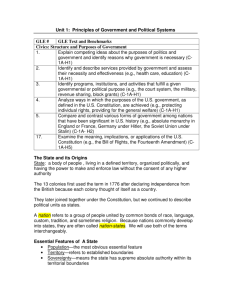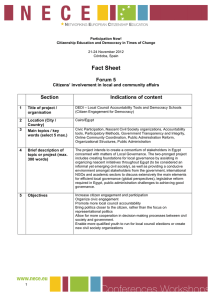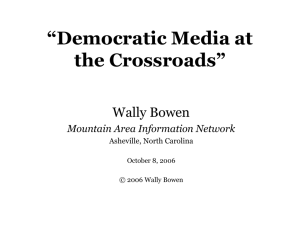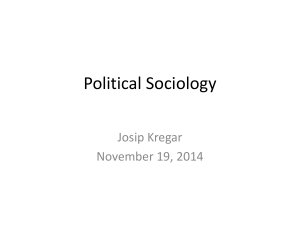Citizens and Politics - key points from the discussion Civil Society
advertisement
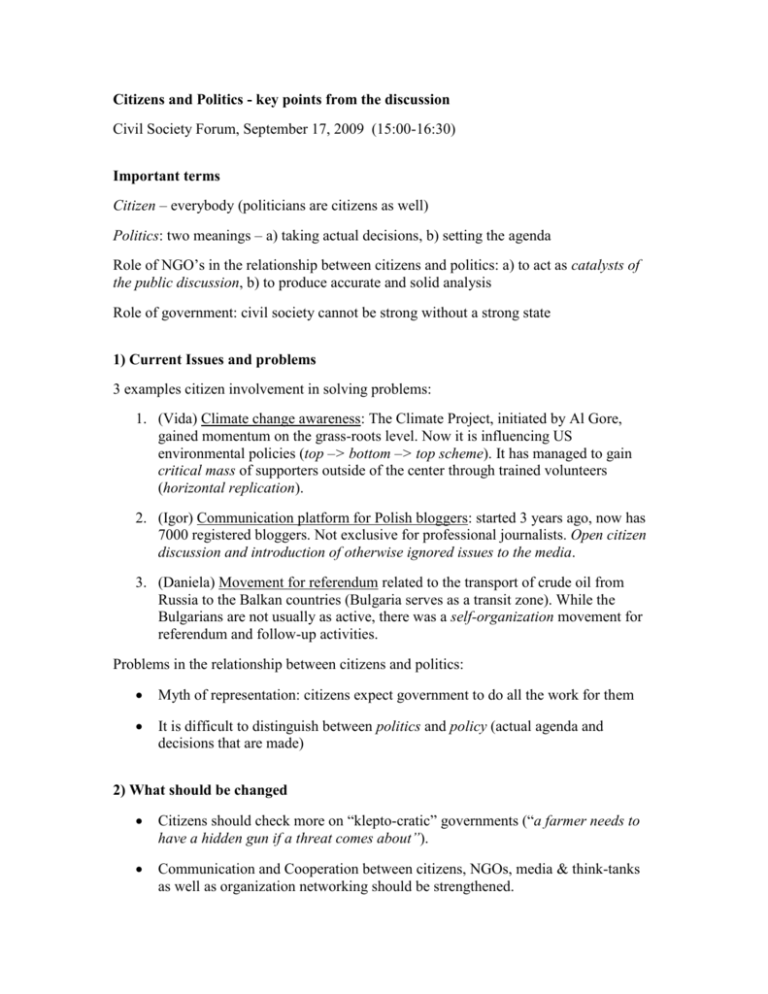
Citizens and Politics - key points from the discussion Civil Society Forum, September 17, 2009 (15:00-16:30) Important terms Citizen – everybody (politicians are citizens as well) Politics: two meanings – a) taking actual decisions, b) setting the agenda Role of NGO’s in the relationship between citizens and politics: a) to act as catalysts of the public discussion, b) to produce accurate and solid analysis Role of government: civil society cannot be strong without a strong state 1) Current Issues and problems 3 examples citizen involvement in solving problems: 1. (Vida) Climate change awareness: The Climate Project, initiated by Al Gore, gained momentum on the grass-roots level. Now it is influencing US environmental policies (top –> bottom –> top scheme). It has managed to gain critical mass of supporters outside of the center through trained volunteers (horizontal replication). 2. (Igor) Communication platform for Polish bloggers: started 3 years ago, now has 7000 registered bloggers. Not exclusive for professional journalists. Open citizen discussion and introduction of otherwise ignored issues to the media. 3. (Daniela) Movement for referendum related to the transport of crude oil from Russia to the Balkan countries (Bulgaria serves as a transit zone). While the Bulgarians are not usually as active, there was a self-organization movement for referendum and follow-up activities. Problems in the relationship between citizens and politics: Myth of representation: citizens expect government to do all the work for them It is difficult to distinguish between politics and policy (actual agenda and decisions that are made) 2) What should be changed Citizens should check more on “klepto-cratic” governments (“a farmer needs to have a hidden gun if a threat comes about”). Communication and Cooperation between citizens, NGOs, media & think-tanks as well as organization networking should be strengthened. Citizens should be more aware of their rights and responsibilities. A more widespread understanding of “ownership” of the European Union (“we are part of Brussels”) should be created. NGO’s should produce more accurate analysis of public issues and should be able to “sell” them to citizens. Dispute #1: should democracy be more direct? Consensus in the discussion: i) we need to consolidate direct and representative democracy – hybrid democracy (both have pros and cons) ii) democracy should be more direct in agenda setting and more representative in decision making. Dispute #2: Should citizens be able to change the rules of democracy? Instead of changing the rules, should they adapt to them? Yes (unless it is crucial) No 83% of discussion participants think that people should campaign for policy change. Dispute #3: Should we train better leaders? Yes citizens should be empowered to become good politicians No various expertise exists on key issues (like in the example of climate analysis) so knowledge doesn’t make a difference. 3) Visions for the future – situation in 15 – 20 years from now Public discussion will be more informed (people will use common sense and will be more pragmatic) >> populism will decrease. There will be more (technological and processional) tools for citizen involvement (though we live in the times when excellent tools exist already). There will be more transparency in politics. Dispute #1: Will politics stay the same as it is today? a) It will be completely different, turning into “Instant citizenship” (citizens for 5 minutes) when citizens will only be active when expressing a quick opinion to a certain problem, and minorities will influence policy-making more than the majority (minorities can be NGOs but also self-serving pro-profit enterprises). Most important issues of politics in the future (a quick round) Aging of society, Climate Control, Energy Resources, Natural Resources, Communication, Sustainable Development, Under-development of some countries, Economy, Participation, Globalized Citizens, “My Way” (together with Frank Sinatra)


